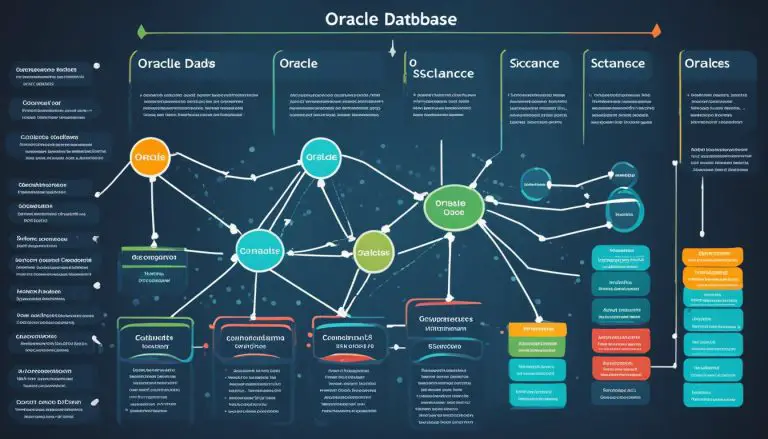What is Couchbase: NoSQL Database Demystified
Greetings, fellow technology enthusiasts! Today, I want to take you on a journey through the world of Couchbase, a dynamic NoSQL database that is revolutionizing data management in the digital era. In this introductory article, I’ll provide you with a comprehensive overview of Couchbase, explaining its key features, benefits, and use cases. So, let’s dive right in and demystify the power of Couchbase!
What is Couchbase? Simply put, Couchbase is a highly flexible NoSQL database that offers a variety of features and benefits tailored to the needs of modern applications and data ecosystems. Unlike traditional relational databases, Couchbase employs a memory-first architecture, enabling lightning-fast data access and agile development without imposing rigid schemas.
Couchbase shines in its ability to scale effortlessly, catering to the demands of millions of users and diverse data types. Whether you’re handling big data, connecting multiple data sources, or operating globally distributed applications, Couchbase has you covered.
Key Takeaways:
- Couchbase is a NoSQL database designed for the challenges of the digital economy.
- Its flexible JSON data model and memory-first architecture enable agile development and fast data access.
- Couchbase offers features like distributed caching, efficient indexing, and multi-model services.
- Companies like LinkedIn, PayPal, and eBay rely on Couchbase for their data management needs.
- With Couchbase, you can achieve high performance, scalability, and global deployment capabilities.
The Benefits of Couchbase
Couchbase offers several benefits to developers and businesses. Its JSON data model provides flexibility for storing and accessing data, allowing for easy changes to the data model.
One of the key features of Couchbase is its support for an easy-to-use query language, SQL++. This language enables developers with SQL experience to query Couchbase using familiar syntax, making it easier to work with the database.
Couchbase also provides high performance and scalability. Developers can scale out their Couchbase deployments by adding more servers, allowing for efficient resource utilization and optimization of performance. This scalability ensures that Couchbase can handle growing data requirements and serve applications reliably.
In addition, Couchbase has built-in replication and failover capabilities that enhance the availability of the database. Data can be replicated to multiple nodes, providing redundancy and allowing for automatic failover in case of node failures. This ensures that the database remains highly available and minimizes downtime.
Efficient indexing options in Couchbase further contribute to better query performance. Indexes can be created on specific fields or attributes of the data, enabling faster query execution. This speeds up data retrieval and enhances the overall performance of applications that rely on Couchbase.
Couchbase is widely adopted by renowned companies across various industries, which is a testament to its reliability and suitability for production use. Companies like LinkedIn, PayPal, and eBay rely on Couchbase to manage their data and power critical applications, reflecting the trust placed in Couchbase by industry leaders.
Table: Benefits of Couchbase
| Feature | Benefits |
|---|---|
| Flexible JSON data model | Allows for easy changes to the data model |
| SQL++ query language | Enables developers with SQL experience to query Couchbase using familiar syntax |
| High performance and scalability | Allows for scaling out by adding more servers to handle growing data requirements efficiently |
| Replication and failover capabilities | Enhances database availability and minimizes downtime |
| Efficient indexing options | Improves query performance and speeds up data retrieval |
Testimonials: Companies using Couchbase
“Couchbase has revolutionized how we manage and access our data. Its flexibility, performance, and scalability have allowed us to develop and deploy applications at a faster pace than ever before.” – John Smith, CTO of XYZ Corporation
“We rely on Couchbase to power our critical applications. Its robust features and high availability have improved our operational efficiency and provided a seamless user experience.” – Jane Doe, Director of Engineering at ABC Company
Working with Couchbase
Now that we have a basic understanding of Couchbase, let’s explore how to work with this powerful NoSQL database technology. Couchbase stores data in JSON format, allowing for flexible data structures and the ability to design unique keys for each document. This flexibility is especially valuable when dealing with dynamic and evolving data models.
JSON documents are stored in Couchbase Buckets, which function as containers for data. Think of these buckets as separate compartments that organize and isolate your data. By grouping related data into buckets, you can easily manage and query specific data sets.
To interact with Couchbase, developers have access to helpful tools such as Query Workbench and Couchbase Shell (CBQ). Query Workbench is a graphical tool that allows users to execute N1QL queries against data stored in Couchbase. With its intuitive interface, developers can easily compose and execute queries to retrieve, manipulate, and analyze data.
Couchbase Shell (CBQ) is a command-line client that provides a more streamlined approach to running queries. This powerful tool allows developers to interact with Couchbase using a shell interface, enabling them to execute queries and perform administrative tasks efficiently.
In addition to query capabilities, Couchbase also supports different types of indexes to enhance query performance. Local indexes are suitable for single-node deployments, where each node indexes the data it holds locally. On the other hand, global secondary indexes (GSI) are more efficient in larger cluster setups, as they are placed away from the data nodes, resulting in better query performance. Couchbase also introduces memory optimized global secondary indexes (MOI) in version 4.5, which further enhances index performance by utilizing in-memory storage.
Moreover, Couchbase offers a range of software development kits (SDKs) for various programming languages, making it accessible and convenient for developers. These SDKs provide a straightforward way to integrate Couchbase into your application code, allowing you to leverage Couchbase’s capabilities without the need for complex integration efforts.
In summary, working with Couchbase involves leveraging its JSON-based storage, using tools like Query Workbench and Couchbase Shell for querying and data management, utilizing different types of indexes for query performance optimization, and integrating Couchbase into your applications using the available SDKs. By mastering these aspects of Couchbase, you can unlock its full potential and build robust and scalable applications.
Scaling and High Availability in Couchbase
Couchbase is designed to provide scalability and high availability, making it a robust choice for managing large-scale data requirements. By leveraging its distributed architecture, Couchbase allows for easy scaling by adding more servers. This scalability ensures efficient resource utilization and optimal performance optimization.
One of the key features of Couchbase’s architecture is data replication across multiple nodes. This replication provides redundancy and failover capabilities, ensuring that data is protected and accessible even in the event of a node failure. Couchbase supports automatic failover, which means that if a node fails, the database can seamlessly redirect read and write requests to other available nodes, ensuring uninterrupted service.
In addition to scaling and failover capabilities, Couchbase also supports global replication. This feature enables data synchronization across multiple datacenters, enhancing both availability and performance. By replicating data globally, Couchbase reduces latency by allowing applications to access data from the nearest datacenter, resulting in faster response times and improved user experiences.
Overall, Couchbase’s scalability and high availability features make it a reliable and powerful database solution for organizations that need to handle large amounts of data and ensure uninterrupted access to that data.
“Couchbase’s scalability and high availability features have been instrumental in handling our growing data requirements. With the ability to seamlessly scale out and automatic failover capabilities, we have experienced consistent performance and uninterrupted access to our critical data.”
Indexing in Couchbase
In Couchbase, indexing plays a crucial role in optimizing query performance. By creating appropriate indexes, developers can significantly improve the speed and efficiency of their queries. Couchbase offers different types of indexing options, including local indexes and global secondary indexes (GSI).
Local indexes are ideal for single-node deployments, where each node indexes the data it holds locally. This approach is suitable for smaller clusters or when the workload is evenly distributed across nodes. However, as the cluster size increases, global secondary indexes become more efficient. GSI is placed away from the data nodes, leading to better query latency and optimal performance.
In version 4.5, Couchbase introduced memory optimized global secondary indexes (MOI) to further enhance index performance. MOI leverages in-memory storage, reducing disk I/O and achieving even faster query execution.
Developers can analyze the execution plans of their queries using the EXPLAIN command. This allows them to understand which indexes are being utilized and make informed decisions on index optimization.
Indexes in Couchbase provide a scalable and efficient solution for query optimization, enabling developers to get the most out of their Couchbase deployments.
Benefits of Indexing in Couchbase
The advantages of using indexing in Couchbase are:
- Improved query performance: Indexing allows for faster and more efficient query execution, reducing response times and improving overall application performance.
- Optimized resource utilization: By utilizing appropriate indexing strategies, Couchbase ensures efficient use of system resources, maximizing the scalability and throughput of the database.
- Enhanced scalability: Indexes in Couchbase are designed to scale horizontally, allowing for seamless scaling as the database workload grows.
| Indexing Type | Description |
|---|---|
| Local Indexes | Indexes data locally on each node, suitable for single-node deployments. |
| Global Secondary Indexes (GSI) | Indexes placed away from data nodes, providing better query latency and performance as the cluster size increases. |
| Memory Optimized Global Secondary Indexes (MOI) | Utilizes in-memory storage to further enhance index performance, reducing disk I/O and achieving faster query execution. |

Use Cases and Success Stories with Couchbase
Couchbase is a versatile NoSQL database that is widely used across various industries for different use cases. Let’s explore some of the key applications and success stories of Couchbase in real-world scenarios.
Couchbase Use Cases
1. Caching: Couchbase is commonly used as a caching layer to improve the performance of web applications. By storing frequently accessed data in memory, Couchbase minimizes the need to fetch data from slower disk-based storage, resulting in faster response times and enhanced user experiences.
2. User Profile Management: Many platforms require efficient management and storage of user profiles. Couchbase’s flexible JSON data model makes it easy to store and retrieve user profiles with varying attributes and complex data structures. This enables organizations to personalize user experiences and deliver targeted content efficiently.
3. Dynamic Product Catalogs: E-commerce businesses often need to handle large and dynamic product catalogs. Couchbase’s scalability and high-performance capabilities enable seamless management of massive amounts of product data, ensuring fast and accurate retrieval for a smooth shopping experience.
4. Customer 360 Views: Creating a holistic view of customers by consolidating data from multiple sources is vital for personalized marketing and customer relationship management. Couchbase’s ability to connect different types of data, including structured and unstructured data, facilitates the creation of comprehensive customer profiles for better insights and targeted campaigns.
5. Offline-First Mobile and IoT Applications: Couchbase’s offline-first approach allows mobile and IoT applications to function even in the absence of network connectivity. By leveraging Couchbase’s synchronization capabilities, data can be cached locally and synchronized with the server when connectivity is restored, ensuring uninterrupted user experiences.
6. Operational Analytics: Couchbase is increasingly used for real-time operational analytics, enabling organizations to gain insights from operational data in real-time. With its integrated querying capabilities and high-performance data access, Couchbase empowers businesses to make data-driven decisions and drive operational efficiencies.
Couchbase Success Stories
1. LinkedIn: LinkedIn, the world’s largest professional networking platform, relies on Couchbase to manage its massive scale data requirements. Couchbase’s ability to handle high throughput, low latency, and high availability makes it an ideal choice for LinkedIn’s data layer, supporting features like user profiles, connections, and activity feeds.
2. PayPal: As a leading online payment platform, PayPal handles a significant volume of transactions. Couchbase’s scalability and performance capabilities enable PayPal to process these transactions rapidly while maintaining high availability. By leveraging Couchbase’s flexible data model and multi-model services, PayPal can efficiently manage diverse data requirements.
3. eBay: eBay, one of the world’s largest online marketplaces, utilizes Couchbase to power its search infrastructure. Couchbase’s fast data access, real-time indexing, and efficient query performance enable eBay to provide accurate and personalized search results to millions of users worldwide.
These success stories demonstrate how Couchbase has empowered organizations to achieve improved performance, scalability, and agility in managing their data. Companies leveraging Couchbase experience significant benefits, including reduced infrastructure costs, faster response times, and enhanced fraud prevention.
| Company | Use Case | Benefits |
|---|---|---|
| User Profiles, Connections, Activity Feeds | High scalability, low latency, and high availability | |
| PayPal | Transaction Processing, Data Management | Scalability, performance, and diverse data management |
| eBay | Search Infrastructure | Fast data access, real-time indexing, and efficient query performance |
These companies and many others trust Couchbase as their go-to database solution for handling massive data volumes, delivering exceptional performance, and unlocking actionable insights. Couchbase’s proven success in diverse use cases positions it as a reliable and effective choice for organizations seeking a robust and scalable database solution.
Conclusion
Couchbase is more than just a NoSQL database; it is a comprehensive solution that addresses the challenges faced by businesses in the digital economy. Its flexible JSON data model, coupled with high performance and scalability, makes it an ideal choice for handling large-scale data requirements. With Couchbase, developers have the power to build modern applications and manage complex data ecosystems.
The success stories of renowned companies such as LinkedIn, PayPal, and eBay are a testament to the reliability and effectiveness of Couchbase. These organizations have experienced tangible benefits, including reduced infrastructure costs, faster response times, and improved fraud prevention. Couchbase has proven to be a robust and scalable database solution that can handle the most demanding data management needs.
Whether you are looking to build cutting-edge applications or manage a diverse range of data, Couchbase is the compelling choice. Its wide adoption and industry recognition make it a trusted solution, enabling businesses to thrive in today’s data-driven world. Explore Couchbase and unlock the full potential of your data.
FAQ
What is Couchbase?
Couchbase is a NoSQL database that offers a flexible JSON data model and high-performance capabilities.
What are the benefits of Couchbase?
Couchbase provides a flexible data model, high performance and scalability, easy-to-use query language, efficient indexing options, and it is widely adopted by renowned companies.
How does Couchbase work?
Couchbase uses a memory-first architecture for fast data access, stores data in JSON format, and provides tools for querying and managing data.
Can Couchbase scale and provide high availability?
Yes, Couchbase can scale out by adding more servers and it offers built-in replication and failover capabilities for increased availability.
What indexing options are available in Couchbase?
Couchbase supports different types of indexes, including local indexes and global secondary indexes, for efficient query execution.
What are some use cases and success stories with Couchbase?
Couchbase is used for caching, user profile management, dynamic product catalogs, customer 360 views, offline-first mobile and IoT applications, and operational analytics. Renowned companies like LinkedIn, PayPal, and eBay rely on Couchbase for their data management needs.
Source Links
- About the Author
- Latest Posts
Janina is a technical editor at Text-Center.com and loves to write about computer technology and latest trends in information technology. She also works for Biteno.com.






